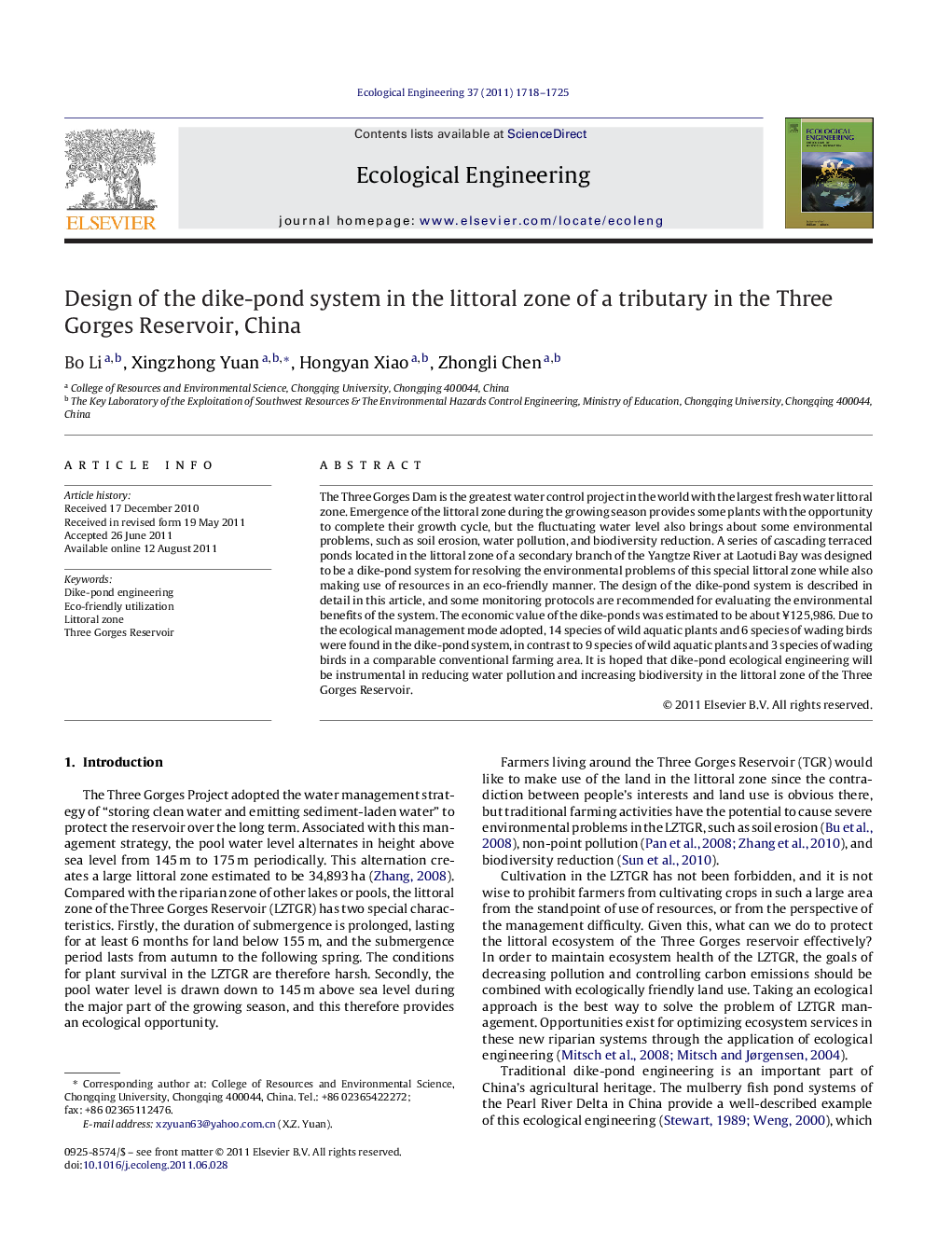| Article ID | Journal | Published Year | Pages | File Type |
|---|---|---|---|---|
| 4390122 | Ecological Engineering | 2011 | 8 Pages |
Abstract
The Three Gorges Dam is the greatest water control project in the world with the largest fresh water littoral zone. Emergence of the littoral zone during the growing season provides some plants with the opportunity to complete their growth cycle, but the fluctuating water level also brings about some environmental problems, such as soil erosion, water pollution, and biodiversity reduction. A series of cascading terraced ponds located in the littoral zone of a secondary branch of the Yangtze River at Laotudi Bay was designed to be a dike-pond system for resolving the environmental problems of this special littoral zone while also making use of resources in an eco-friendly manner. The design of the dike-pond system is described in detail in this article, and some monitoring protocols are recommended for evaluating the environmental benefits of the system. The economic value of the dike-ponds was estimated to be about ¥125,986. Due to the ecological management mode adopted, 14 species of wild aquatic plants and 6 species of wading birds were found in the dike-pond system, in contrast to 9 species of wild aquatic plants and 3 species of wading birds in a comparable conventional farming area. It is hoped that dike-pond ecological engineering will be instrumental in reducing water pollution and increasing biodiversity in the littoral zone of the Three Gorges Reservoir.
Keywords
Related Topics
Life Sciences
Agricultural and Biological Sciences
Ecology, Evolution, Behavior and Systematics
Authors
Bo Li, Xingzhong Yuan, Hongyan Xiao, Zhongli Chen,
